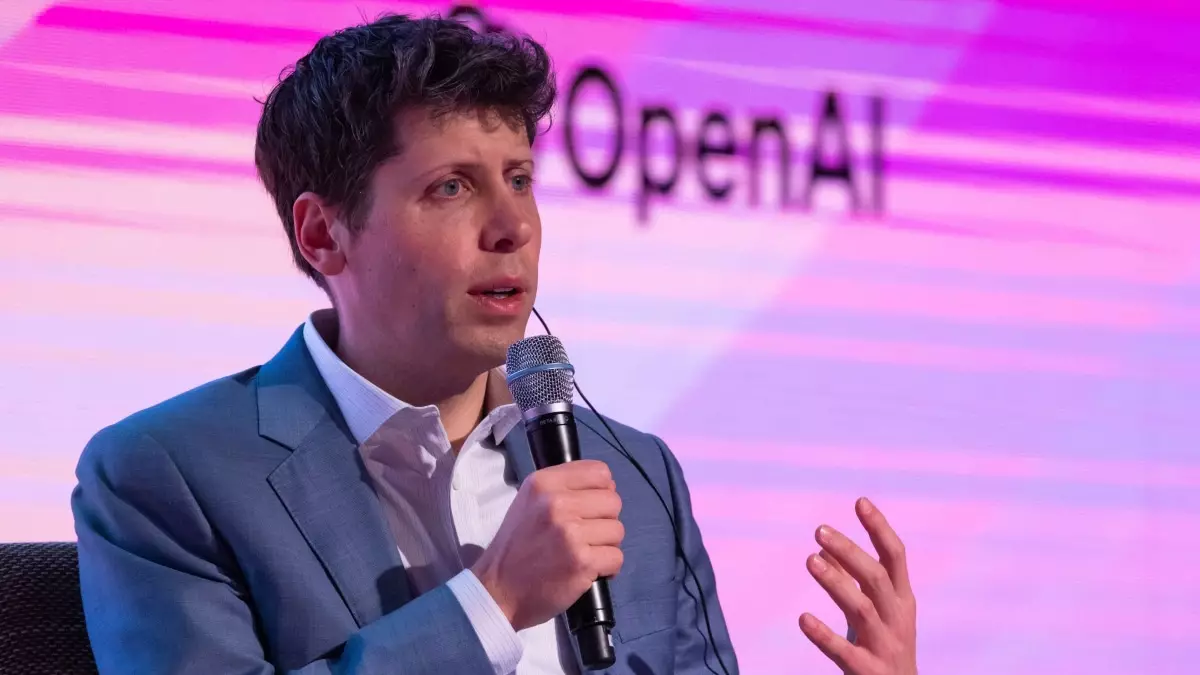In a world defined by rapid technological advancement, the courtroom may very well become the new battleground where the fate of innovation is determined. The impending trial pitting Elon Musk against Sam Altman represents a microcosm of the larger ethical and strategic debates surrounding artificial intelligence and corporate responsibility. With a trial date now firmly set for March 16, 2024, we peer into a conflict that will not only affect the two billionaires involved but will have significant implications for the future of OpenAI, the tech landscape, and society at large.
As the dust settles on preliminary hearings, U.S. District Judge Yvonne Gonzalez Rogers is steering the court proceedings with an unusual urgency for an affair of this magnitude. By opting to fast-track the case rather than let it linger for years, she recognizes the pressing nature of the issues at hand. Musk’s lawsuit aims to challenge OpenAI’s transition from its original nonprofit model to a for-profit enterprise, an issue that intensifies with each passing day as the company pursues its restructuring plans. This isn’t merely a battle over company structure; it poses deeper ethical questions about the mission of artificial intelligence itself.
Musk’s Moral Dilemma: A Crusade or Ambition?
Since its inception in 2015, OpenAI has claimed a dedicated stance toward AI safety and ethics, a mission that Musk ardently supported until his departure from the board in 2018. Now, with allegations that the company has strayed from its altruistic beginnings, Musk casts himself as a champion of the original vision. However, skeptics might argue that his stance serves dual purposes: safeguarding his own business interests through xAI while criticizing a competitor that, in his eyes, has lost its moral compass.
Indeed, the juxtaposition of Musk’s latest endeavors—a $100 billion entity emerging from a venture that acquired the social media platform X—raises eyebrows. Is Musk genuinely concerned about the ethical ramifications of AI, or is this a veneer for a competitive thrust against a rapidly ascending OpenAI? The rapid valuation leaps and funding rounds indicate the implications of this cutthroat rivalry. While Musk positions himself as the defender of ethical AI, one wonders if this is less a crusade for a noble cause and more a strategic guardian of his empire.
The Case for Corporate Responsibility
Critics of OpenAI’s transition argue that prioritizing profit over purpose can compromise ethics in artificial intelligence development. Sam Altman’s vision for a structured, benefit-driven organization rides on the promises of profitability without sacrificing social responsibility—a prospect that must be carefully analyzed as the trial looms. Musk’s accusation of Altman succumbing to corporate greed is not merely a personal grievance; it strikes at the heart of a community increasingly wary of how powerful entities wield emerging technologies.
Yet, there’s a fundamental question we must ask ourselves: should we demonize profit-seeking motives entirely? Certainly, models of funding must evolve, especially for organizations engaged in as high-stakes a game as AI. Musk’s previous leadership is not beyond reproach, given his departure allowed for unwanted influences to creep in, so the integrity of the narrative he’s attempting to pitch warrants scrutiny.
The Ripple Effect: Impingement on the Tech Industry
The ramifications of this legal spat extend beyond OpenAI; they resonate through the fabric of the entire tech ecosystem. Investors are keeping their eyes peeled, as the winds of uncertainty have been unleashed. OpenAI’s restructuring will not only determine Musk and Altman’s corporate fortunes but will also make a bold statement about the industry’s approach to innovation—an industry that continues to grapple with its growing power and the ethical implications therein.
Altman’s recent funding raise, amounting to a staggering $40 billion—a move interpreted by some as a bold, ill-thought gamble—must be under constant surveillance as it sets the stage for a future where profit and purpose are at odds. This legal confrontation wouldn’t just serve as a test case for OpenAI’s practices; it might well illuminate broader ethical dilemmas confronting tech giants across the globe.
As the trial date approaches, industry insiders, policymakers, and advocates alike should brace for a showdown that could redefine not only the trajectories of Musk and Altman but the very essence of how we conceive of artificial intelligence—balancing humanity’s progress against safeguards that our increasingly digital world so desperately needs.


Leave a Reply